Can contact lenses and solution freeze?

Have your contact lenses frozen in their packaging during your winter ski holiday, or spent a chilly night in the car, leaving you unsure about their condition?
Although contact lenses are designed to withstand a range of temperatures and are typically safe to wear after they’ve frozen and thawed again, our Lentiamo optometrists have some post-freeze suggestions.
Explore how sub-zero temperatures can impact your contacts in winter, and gain insights to ensure the optimal care for your lenses and eyes.
Can contact lenses freeze?
Yes, contact lenses stored in solution can freeze when exposed to temperatures around or below -15°C. This includes contacts sealed in manufacturer blister packs with buffered solution.
Luckily, contacts won’t freeze on your eyes (even in freezing conditions). The surface temperature of the cornea and tears maintain a temperature around 34–35°C, warm enough to prevent lenses from freezing when worn.1
Did you know?
When contact lenses aren’t stored in a lens solution, they’ll likely dry out before they freeze. This makes them more susceptible to scratches, rips, breakage and deposits.
What happens if contact lenses freeze?
Contact lenses will likely remain wearable even after they’ve frozen. However, changes impacting their safety and wearability can occur in rare cases. These changes might include:
- Structural changes in lens material – Structural changes can affect optical properties and overall performance.
- Cracking or breaking – Frozen lenses can more easily crack, break or tear if not handled carefully, rendering them unusable.
- Dehydration effects – Freezing can lead to dehydration, altering the water content of the lens and affecting comfort and clarity.
- Impact on lens solution – The lens solution in blister packs may also be affected by freezing, potentially impacting its ability to provide a suitable environment for contact lenses.
Factors that influence contact lenses freezing
Differences between types of contact lenses can determine the rate at which lenses freeze or how they’re impacted. Considerations include:
- Water content – Higher water content lenses may freeze more easily, potentially causing structural damage.
- Material composition – Soft lenses may be more vulnerable to temperature changes than rigid ones.
- Duration of exposure – Extended exposure increases the risk of damage.
- Lens design – Complex lens designs, such as multifocal contacts, may show more noticeable changes.
Are frozen contacts safe to use?
If there aren’t any signs of physical damage or structural changes, contacts are generally safe to wear after being frozen.
In a 2019 study backed by contact lens manufacturer CooperVision, researchers concluded that all contact lenses they tested at -50°C (-58°F) for 72 hours retained their approved parameters for base curve (BC), diameter (DIA), water content and power (PWR). Additionally, all tested contact lens care solutions adhered to specifications for pH, osmolality, disinfection efficacy, and preservative efficacy after exposure.2
Be aware that any damage to unopened blister packs or packaging may signal potential issues with the contacts or solution, frozen or not. If there is noticeable damage to the packaging, refrain from using the contact lenses and consult with the retailer you purchased them from for further guidance about the damaged goods, their safety or potential replacements.
What to do if your contact lenses freeze?
If your contact lenses have frozen, follow the steps below to ensure they’re safe for use:
- Thaw contacts gradually – Allow frozen contact lenses to thaw naturally in a room temperature environment. Avoid using heat sources like microwaves or hot water as this will warp and damage lenses.
- Inspect for damage – Check for any signs of damage, such as shape changes, cracks, or other irregularities after thawing. If damaged, dispose of them.
- Consult a professional – Whenever unsure about safety or effectiveness, contact your eye care professional for guidance.
- Prevent future freezing – Store lenses in a temperature-safe location, especially during travel in cold conditions. You can also keep them close to your body to maintain a moderate temperature if needed.
Can contact lens solution freeze?
Yes, contact lens solution can freeze in temperatures around -15°C, whether in blister packs or bottles. Check the manufacturer’s label or website for recommended temperature storage ranges. Typically, room temperature around 20–25°C (68–77°F) is recommended.
Check your solution for changes in colour, clarity or odour after thawing. Discard the solution and use a new one if you observe any abnormalities.
Preventing contact lenses and solution from freezing
To prevent contact lenses and solution from freezing, consider the following measures:
- Storage location – Keep your contact lens solution in a cool, dry place, away from windows and external doors that create a draught.
- Avoid leaving in vehicles – When traveling, make sure to bring contacts and solutions indoors to prevent unnecessary exposure to cold temperatures.
- Take carry-on baggage – Bring travel-size contact lens solution in your hand luggage rather than checked bags, where temperatures can be more extreme.
- Schedule deliveries – Opt for scheduled deliveries or indoor pickup points. Remember though that lenses can freeze in transit so be mindful when handling your contacts.
Pro tip: Expecting a contact lens delivery and worried about your lenses freezing? Select indoor pickup points or schedule deliveries when possible. This minimises the time a parcel might sit outside in the cold before you pick it up. But remember that your contacts might have frozen in transit. Be sure to examine them before use.
Quick facts
- -15°C (5°F) – The approximate temperature at which contact lens solution and contacts can freeze.
- 34–35°C (~93–95°F) – The surface temperature of the cornea and tears which prevents lenses from freezing on your eyes.
- 20–25°C (68–77°F) – Temperature range to store contacts and solution (but be sure to check manufacturer specifications).
It's essential to follow manufacturer guidelines regarding storage and handling to prevent damage to your contact lenses. If you’re ever unsure about the suitability of your contacts or products in specific weather conditions, consult your eye care professional for personalised advice.
Frequently asked questions
Are contacts ruined if they freeze?
In most cases, contacts aren’t ruined if they freeze in their packaging. The buffered solution is designed to maintain a stable pH level for the safety of your contacts. However, it's essential to inspect lenses for any visible damage before use. Consulting your eye care professional is the best way to ensure the safety of your contacts.
Can unopened contacts freeze?
Yes, unopened contact lenses can freeze while in solution around -15°C (5°F). Sealed blister packages will typically protect contacts from any physical damage, but the solution’s efficacy can be compromised. After a few hours at room temperature, contacts will return to their normal state so you can inspect them for any noticeable changes in colour or shape.
What temperature is too cold for contacts?
Contact lenses in solution are susceptible to freezing at temperatures around -15°C (5°F). While wearing contacts in cold weather can result in dry or irritated eyes, contacts won’t freeze on your eyes in extreme temperatures.
Closing thoughts from Lentiamo
In conclusion, there's usually no need to worry about the safety of frozen contact lenses or contact solutions. Nevertheless, exercise caution when inspecting and reinserting your contacts after they've thawed.
And remember to take other precautionary measures to ensure eye safety during winter, including wearing sunglasses to shield your eyes from harmful ultraviolet rays.
If you have any uncertainties about using contacts or ensuring eye safety in freezing temperatures, feel free to seek personalised assistance and guidance from your eye care professional. They'll be more than happy to address your concerns and provide the necessary support.
Read more
Sources
1.National Library of Medicine, Impact of Ocular Surface Temperature on Tear Characteristics: Current Insights
2.CooperVision, Impacts of Extreme Environmental Conditions on Contact Lenses
Comments
Add a questionThank you for your comment.
I apologise for the delayed response.
Since the lenses were in their blisters (that contain solution), it is likely that they are suitable for wear, however, no one can guarantee that, other than an ophthalmologist.
How did the lenses look upon opening the blister? Were they dried out?
Kind Regards.
Thank you for your comment.
We would suggest consulting your doctor regarding this issue.
Kind Regards.
Hello Yash,
Thank you for your comment.
As mentioned in the article, we would not suggest wearing lenses that may
have frozen, as damage might have occured. As stated: if you decide to wear a
defrosted lens, you should have it checked by a specialist, with a magnifying
device.
Kind Regards.
Hello Eru,
Thank you for your comment.
I can assure you that the good are safe to use, as they were kept in a
suitable temperature troughout the transportation.
Regards.
Hello Cristy,
Thank you for your inquiry.
As the article states, usually the solution will freeze after a few hours.
The best would be to follow the instructions on the containers of both drops and
solution.
Kind Regards.
Dear Robyn,
Assuming that the temperature for that week did not go well below –10
or –15, like it says in the article, there shouldn't be any problem.
It is also important to know which brand and type of lenses you are wearing,
as the water content might make a lot of difference in the way they respond to
cold temperatures.
It is true that you should seek a doctor's advice, therefore you could try,
but don't be surprised if they don't feel comfortable.
Please contact me at info@lentiamo.co.uk for
more details.
Best regards, Fabrizio
Hi Chad,
All good here. Is there anything we can help you with?
Best wishes,


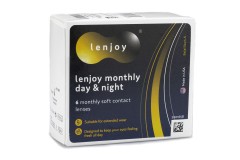
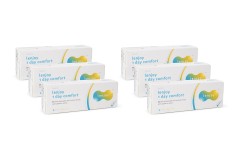
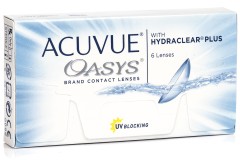
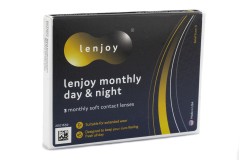
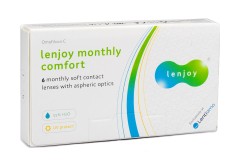
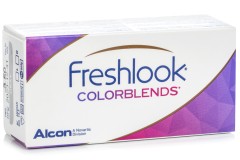
Amanda S.
Thank you for your comment.
Keep the package of contact lenses in a place where you are able to maintain a stable room temperature for as long as possible. Or at least one that does not drop below freezing in the room.
Have a lovely day.